Best Time to Take a Pregnancy Test: A Journey of Hope, Science, and Stories
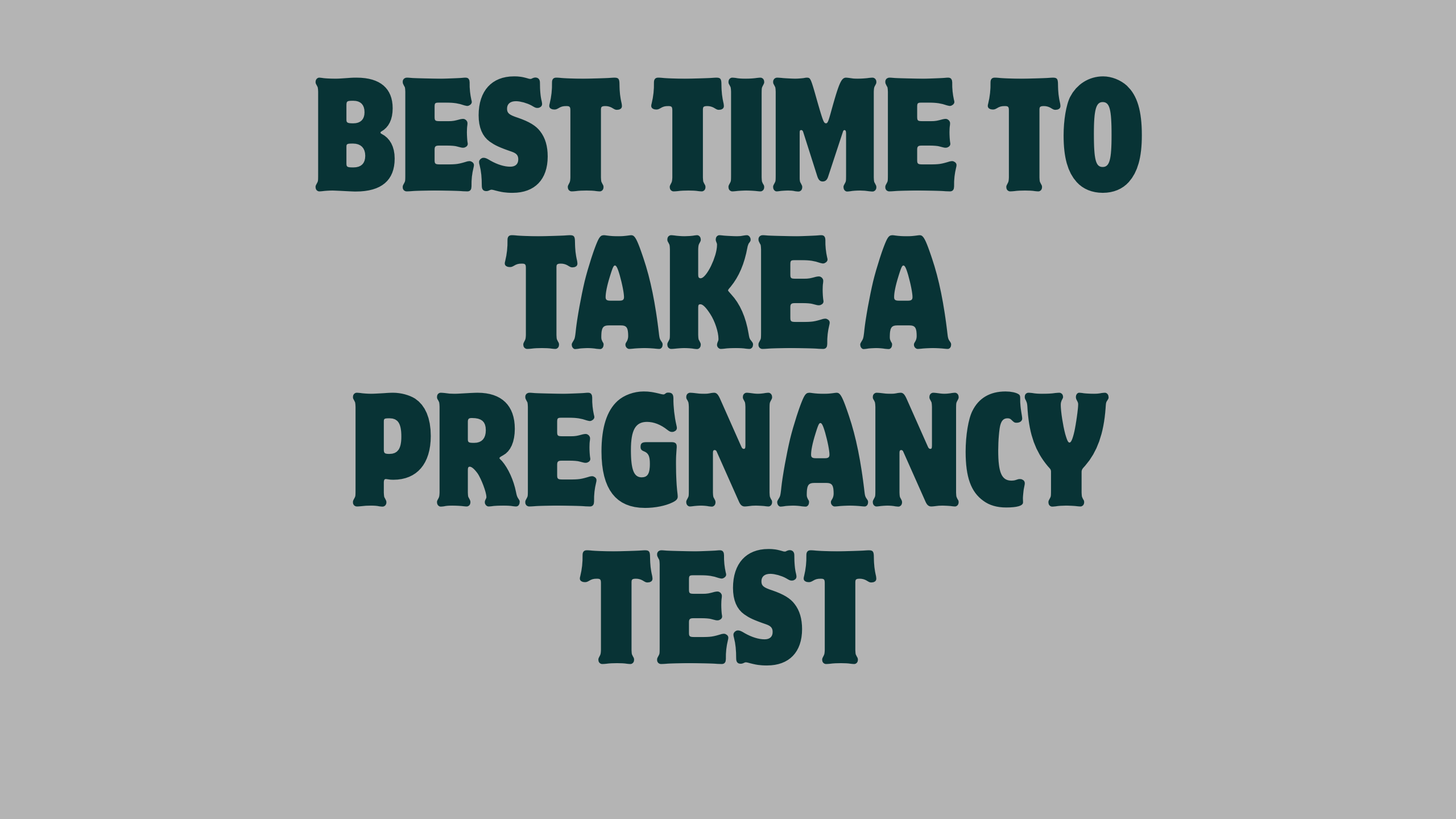
Best Time to Take a Pregnancy Test
Best time to take a pregnancy test?
It’s 6:00 a.m. in a quiet American suburb. The sun is just peeking through the curtains. Emma sits on the edge of her bathroom sink, holding her breath, clutching a small white stick in her hands. She had picked up the pregnancy test at CVS the night before, her heart racing as she walked down the aisle labeled Family Planning.
Her mind keeps looping one single question: “When is the best time to take a pregnancy test?”
If you’re reading this, you might be exactly where Emma was—full of hope, maybe a little fear, and a lot of curiosity. You want to know the answer, but you also want reassurance. And in this long, creative, and story-driven guide, I’m going to walk you through everything—science, myths, real experiences, and the emotional side of testing.
Best Time to Get Pregnant Calculator
Pinpoint your fertile window using your cycle dates. Based on the classic ovulation model (ovulation ≈ cycle length – luteal phase).
Your Cycle Details
Most cycles are 21–45 days. 28 is common.
If unknown, leave 14 (most common).
Enter your dates to see your fertile window and ovulation estimate.
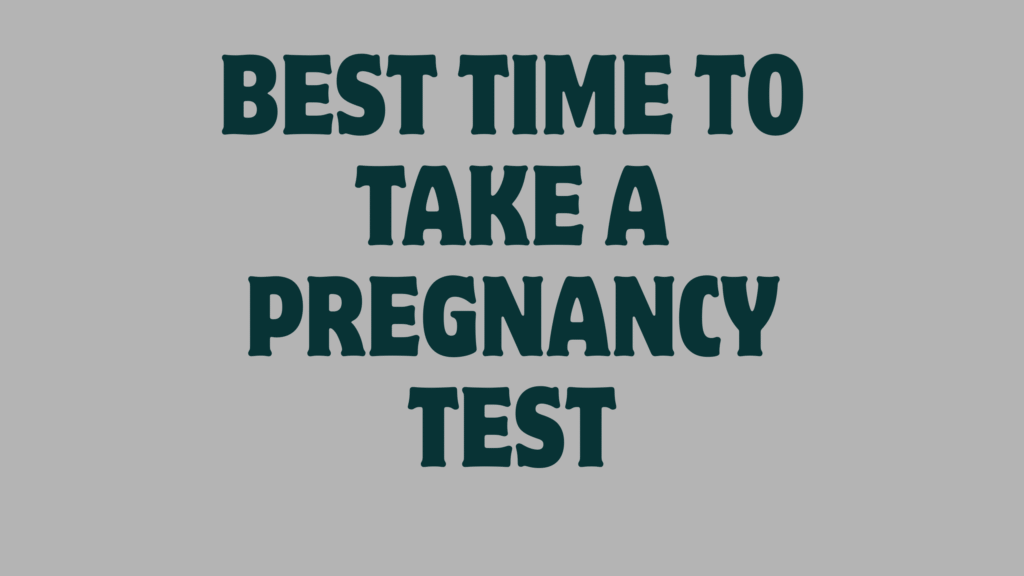
Why Timing Matters So Much
A pregnancy test isn’t just a test. It’s a moment of truth. It can change the direction of your life in a matter of minutes.
Here’s why the timing of taking a pregnancy test is so important:
The test works by detecting hCG (human chorionic gonadotropin), a hormone produced after implantation.
If you test too early, your body may not have enough hCG to show a positive result.
If you test too late, well—you’ve already spent weeks in confusion.
So knowing the best time to take a pregnancy test saves you from the rollercoaster of false negatives or unnecessary stress.
Morning vs. Evening: Does It Really Matter?
Many women in the U.S. have Googled, “Should I test in the morning?” And the answer is usually yes.
Morning urine is more concentrated because you haven’t had water all night.
That means the levels of hCG are higher and easier for the test to detect.
But here’s the twist:
By the time you’ve missed your period by a week or more, the time of day doesn’t matter as much. Tests are sensitive enough to detect hCG even in diluted afternoon urine.
Emma’s story continues: She tested at 5 a.m., and when the faint pink line appeared, she whispered to herself, “I knew it.”
Science Behind the “Best Time”
Let’s break it down scientifically but in a simple way:
Ovulation – Usually happens around Day 14 of a 28-day cycle.
Fertilization – If sperm meets egg, conception occurs.
Implantation – Happens 6–12 days after ovulation. This is when hCG starts being produced.
Detectable hCG – Around the time your period is due, but stronger a week later.
So, the best time to take a pregnancy test is one week after your missed period.
Myth vs. Reality: Stories Passed Down
Pregnancy myths have traveled across generations like bedtime stories. Let’s explore a few:
Myth 1: You can feel pregnant right away.
Reality: Symptoms like nausea or breast tenderness often mimic PMS. Only a test confirms pregnancy.Myth 2: You can test the morning after sex.
Reality: Way too soon. No test can pick up hCG that early.Myth 3: Holding the test under moonlight makes results clearer.
Reality: Funny, but nope—only hormones count.
Sarah’s grandmother used to say, “If you crave sour foods after a wedding night, you’ll know a baby is on the way.” Sarah believed it until a negative test reminded her that science is a better guide than cravings.
Emotional Rollercoaster of Testing
In American households, pregnancy testing is often tied to deep emotions:
Excitement for couples actively trying.
Anxiety for women unsure if they’re ready.
Relief in some situations when the result is negative.
Every test tells a story. And sometimes, women test more than once, just to be sure. CVS, Walgreens, and Walmart aisles are full of stories like Emma’s—women buying two or three tests just for peace of mind.
Best Time to Take a Pregnancy Test After Your Period
Now, let’s get more specific:
If your period is regular, test 1 week after a missed period.
If your cycle is irregular, wait at least 21 days after unprotected sex.
For women undergoing fertility treatments in the U.S., doctors often recommend waiting 14 days after ovulation.
This timing ensures accuracy, reduces false negatives, and gives you confidence in the result.
Early Detection Tests: Are They Worth It?
Brands in the U.S. like First Response Early Result promise detection up to 6 days before your missed period.
But—while they’re accurate for some women, not everyone produces enough hCG that early. That’s why sometimes you’ll hear stories like:
“I got a positive three days before my period!”
“Mine showed negative until 2 weeks later, then it turned positive.”
So yes, early detection tests are convenient, but if you want certainty, the best time to take a pregnancy test is still after your missed period.
Blood Tests vs. Urine Tests: What’s Better?
In the U.S., OB-GYNs often recommend blood tests when absolute clarity is needed.
Urine tests (home kits) are convenient, private, and quick.
Blood tests measure exact hCG levels and detect pregnancy earlier.
If you’ve had fertility issues or previous miscarriages, your doctor may recommend a quantitative blood test around Day 10 post-ovulation.
Cultural Perspective: How Americans See Testing
Pregnancy testing in America has its own culture:
Some couples test together, making it a shared emotional moment.
Some women test secretly before telling anyone.
TikTok and Instagram are full of creative “big reveal” videos showing test results to partners.
But whether done in silence at dawn or on camera with balloons, the timing rule remains the same: wait until after your period for the most accurate results.
FAQ: Quick Answers People Search For
Q: Can I take a pregnancy test at night?
Yes, but morning is better in early days.
Q: How soon after sex can I test?
At least 2–3 weeks later, otherwise it’s too early.
Q: What if I get a faint line?
A line is a line—test again in 48 hours for confirmation.
Q: Can stress delay periods and confuse results?
Absolutely. Stress can delay your cycle, making it harder to know the right time.
The Psychological Side: Why We Can’t Wait
Emma’s story comes full circle here. After testing too early once and getting a false negative, she swore to wait the next time. She later described it like this:
“Waiting that extra week was the hardest thing I ever did. But when I finally saw the bold, undeniable pink line, I cried—not because of the result, but because of the patience it taught me.”
And maybe that’s what this entire journey is about—not just finding the best time to take a pregnancy test, but learning patience, trust, and acceptance.
The Moment That Defines Tomorrow
So, let’s answer the question once and for all:
The best time to take a pregnancy test is one week after your missed period, using first-morning urine.
It’s simple science, but wrapped inside is a deeply emotional journey. Because behind every test is a dream, a fear, or a hope.
Whether you’re like Emma in her bathroom at dawn, or Sarah laughing off her grandmother’s myths, or a couple holding hands over a digital stick—this small test has the power to change everything.
So breathe. Wait. And when the time is right, take the test.
About The Author
JYO JOURNEY
PregnancyKit – to provide real, honest, and easy-to-understand information for women who might be wondering, “Am I pregnant?” or “What should I expect now?” Every guide I write is based on what we wished we had known during our own journey.
Through PregnancyKit, I want to help women feel supported, informed, and confident from the very first symptom. Because I believe every woman deserves clarity, care, and a little less stress during one of the most important journeys of her life.
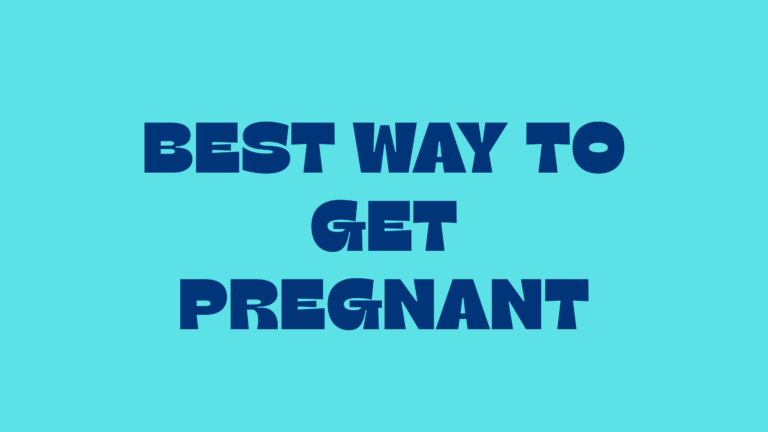
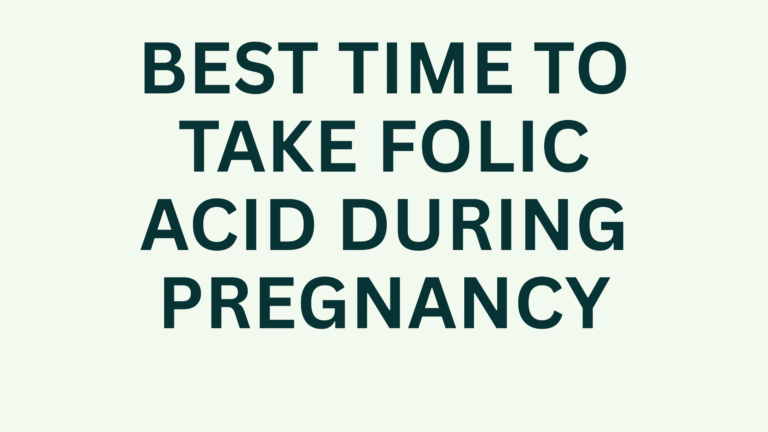
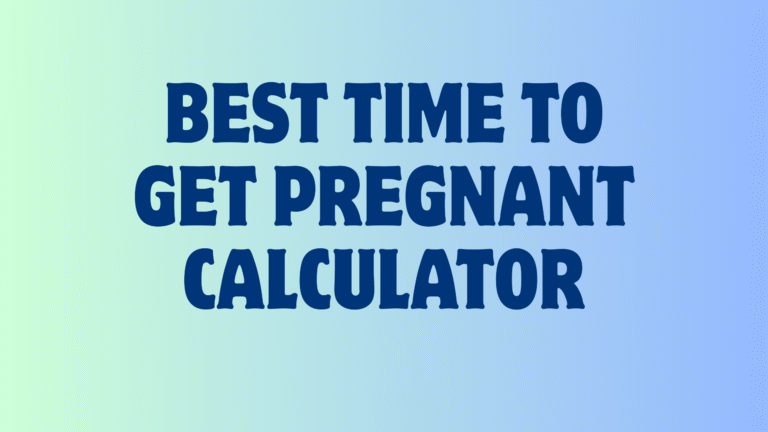
5 thoughts on “Best Time to Take a Pregnancy Test: A Journey of Hope, Science, and Stories”